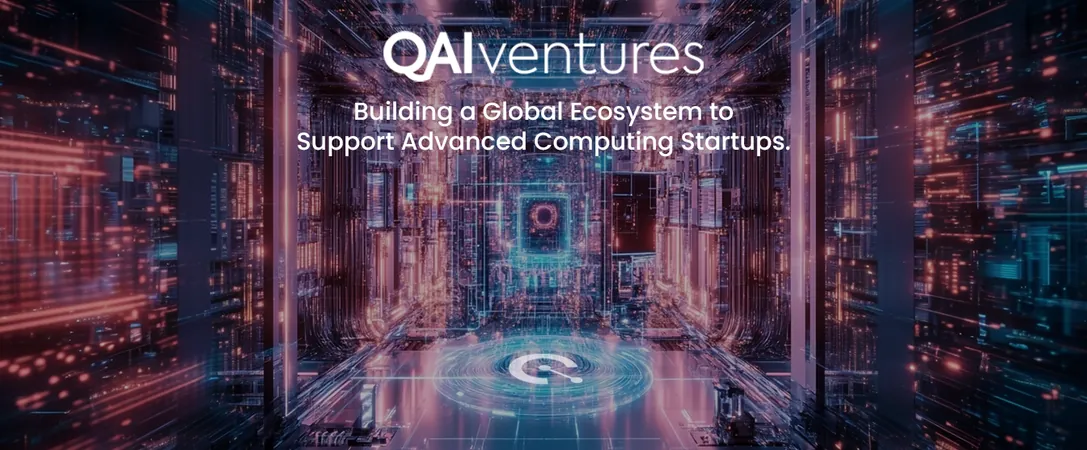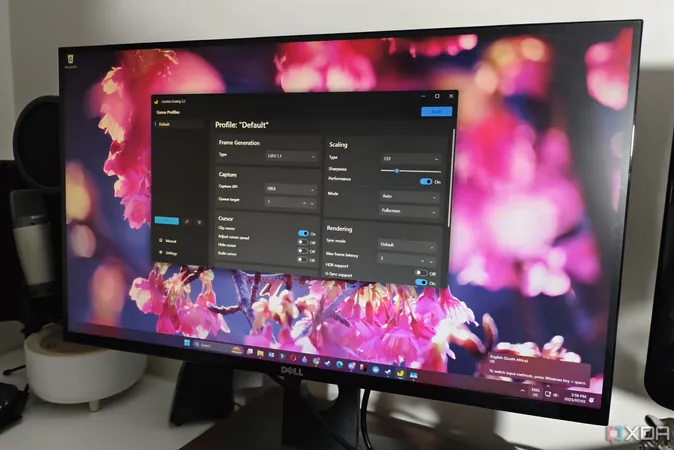
Unlocking the Hidden Power of AI in Quantum Computing: A Future Revolution
2024-11-13
Author: Jacques
Quantum technologies are swiftly taking center stage as governments, research institutions, and businesses recognize their vast potential. With government funding commitments approaching a staggering $40 billion, alongside nearly $8 billion in private investments since 2021, the race to harness quantum capabilities is officially on. The National Institute of Standards and Technology (NIST) has recently highlighted this importance by introducing three new post-quantum security standards, categorized as "critical resources" vital for economic stability and national security.
The Transformative Role of AI
AI encompasses a wide array of algorithms that can be categorized into various layers. The first tier involves machine learning (ML), which analyzes historical data to predict outcomes. Deeper down, we find deep learning (DL), which incorporates self-learning capabilities alongside traditional data processing. Graph Neural Networks (GNNs) use network theory to further enhance both ML and DL by analyzing complex relationships within data.
Emerging technologies like Generative AI, especially large language models (LLMs), rely heavily on these foundational techniques, revealing the intricate connections between AI and quantum computing. By utilizing vast datasets from quantum sensing, deep learning algorithms stand to gain valuable insights that could enhance their predictive capabilities.
Current Frontiers: AI in Quantum Simulation and Optimization
Quantum simulation has the remarkable potential to emulate the intricate interactions of matter and energy on a microscopic scale. Coupled with quantum optimization, which leverages unique quantum algorithms for solving complex problems, the application of AI can significantly elevate these technologies. The synergy of ML, DL, and GNNs can unveil patterns in data that conventional methods overlook, redefine complex datasets into simpler forms, and project the behaviors of quantum systems.
Applications in Real World Scenarios
Route Optimization in Delivery Services
For logistics giants like FedEx and DHL, optimizing delivery routes amidst myriad variables—traffic patterns, weather impacts, and more—can be daunting. Here, the Quantum Approximate Optimization Algorithm (QAOA) can revolutionize route planning, working synergistically with ML models to derive the most efficient paths, thereby driving down costs and improving efficiency.
Groundbreaking Developments in Pharmacology
In the realm of drug discovery, the combination of quantum computing and AI is proving to be game-changing. Companies such as Kvantify are utilizing algorithms like the Variational Quantum Eigensolver (VQE) for molecular modeling, while AI enhances the process by optimizing performance and expediting research. This confluence stands to reshape pharmacology, potentially leading to faster and more effective drug development.
Addressing Quantum Error Correction Challenges
One of the formidable obstacles in quantum computing is managing environmental noise and decoherence, which often leads to errors in qubit performance. Whereas classical computers employ error correction through redundant data encoding, the quantum realm necessitates innovative solutions. AI can provide valuable insight into error recognition, predict noise patterns, and refine error correction codes, dramatically increasing the reliability of quantum systems.
Challenges in Merging AI with Quantum Technologies
The integration of AI into quantum processing is fraught with challenges. Qubits operate under the principles of quantum mechanics, utilizing phenomena like superposition and entanglement to exceed classical computational capabilities. However, various hurdles must be overcome, including:
- **Data Representation**: Efficiently transferring data between classical and quantum systems remains resource-intensive and complex, requiring meticulous preparation of quantum gates.
- **Processing Speed**: Current quantum processors exhibit slower gate execution, and the added complexity of error correction mechanisms can further delay processing times.
- **Hardware Limitations**: Most quantum processors require extremely low temperatures, and producing high-quality qubits with enduring coherence times is still a technological challenge.
A Catalyst for Progress: QAI Ventures
The potential for AI within quantum technologies is immense, exhibiting a symbiotic relationship where quantum advancements could enhance AI algorithms' performance significantly. In light of these possibilities, investment and infrastructural support are crucial. QAI Ventures stands at the forefront as a venture capital fund dedicated to nurturing innovation in quantum technologies and AI.
QAI Ventures provides an essential ecosystem for startups, fostering collaboration and facilitating access to vital resources that can dramatically impact technological growth. Their commitment to patient investment resonates with the need for advancing research and entrepreneurship in this nascent field.
A Rising Star: QAI Ventures’ Partnership with Phoenix Technologies
A stellar example of QAI Ventures’ impact came in April 2024, when they partnered with Phoenix Technologies, a Swiss tech cluster focused on AI innovation. Together, they are developing the **kvant AI Platform** on IBM's Vela AI Supercomputer, providing a comprehensive AI solution built on a sovereign cloud infrastructure.
As Alexandra Beckstein, Co-Founder and CEO of QAI Ventures, stated, merging AI with quantum capabilities not only propels technological advancements but equips startups with indispensable tools for redefining industry standards.
Conclusion: Embracing the Convergence of AI and Quantum Technologies
The merging of quantum technologies with AI is on the brink of a revolutionary breakthrough. Although we have only scratched the surface, emerging applications such as quantum-enhanced drug discovery, logistics optimization, and error correction through AI are paving the way for broader implementation across sectors.
The journey toward practical applications requires a commitment to research, collaboration, and a supportive ecosystem. With initiatives like QAI Ventures leading the charge, together we can unlock the transformative potential of this new technological frontier, ushering in a future where quantum computing and AI become indispensable partners in our quest for knowledge and innovation.
**Are you ready to witness the next big leap in technology? Stay tuned!**









 Brasil (PT)
Brasil (PT)
 Canada (EN)
Canada (EN)
 Chile (ES)
Chile (ES)
 Česko (CS)
Česko (CS)
 대한민국 (KO)
대한민국 (KO)
 España (ES)
España (ES)
 France (FR)
France (FR)
 Hong Kong (EN)
Hong Kong (EN)
 Italia (IT)
Italia (IT)
 日本 (JA)
日本 (JA)
 Magyarország (HU)
Magyarország (HU)
 Norge (NO)
Norge (NO)
 Polska (PL)
Polska (PL)
 Schweiz (DE)
Schweiz (DE)
 Singapore (EN)
Singapore (EN)
 Sverige (SV)
Sverige (SV)
 Suomi (FI)
Suomi (FI)
 Türkiye (TR)
Türkiye (TR)
 الإمارات العربية المتحدة (AR)
الإمارات العربية المتحدة (AR)